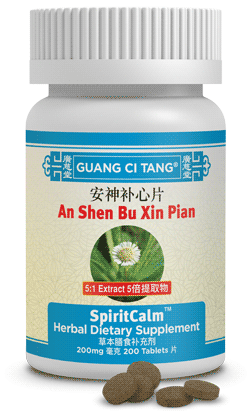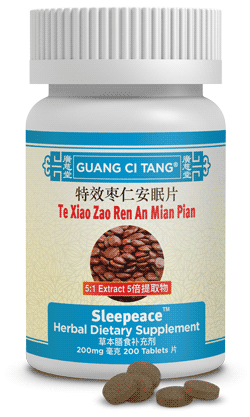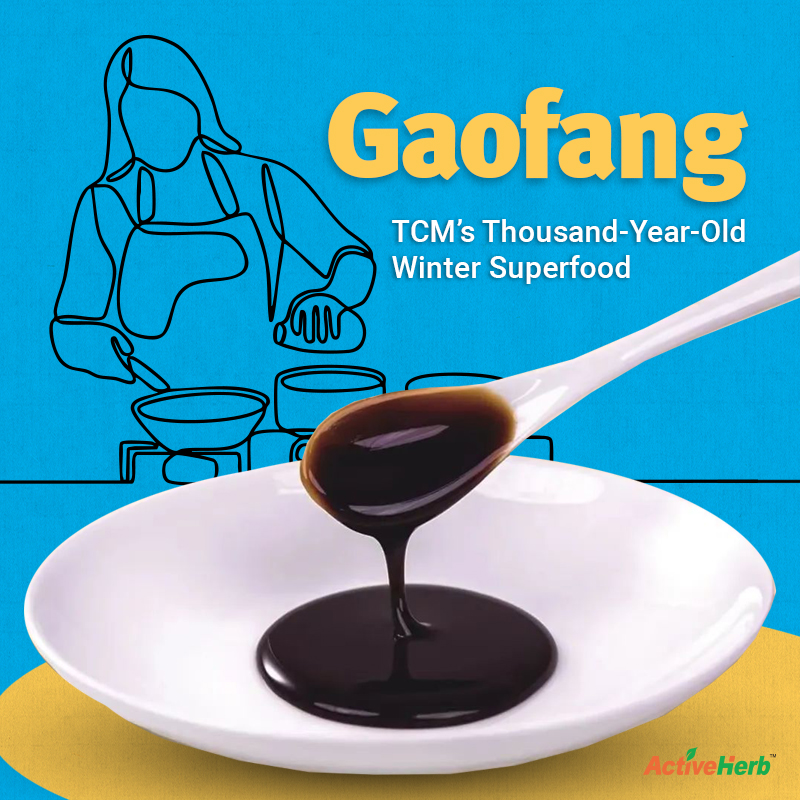TCM Sleep Solutions for Every Sleep Struggle

What’s your sleep struggle?
Does it take forever to fall asleep?
Is it impossible to shut off your mind?
Do you fall asleep easily but wake up a few hours later wide awake and then it takes forever to fall back asleep?
Does subconscious worry prevent restful sleep?
Regardless of your unique sleep problems, TCM may offer a solution.
But first, let’s explore the root causes of sleep problems…
What Causes Poor Sleep According To TCM?
In TCM theory, there are several patterns or root causes that can prevent good sleep quality, including:
Imbalance of Qi (Vital Energy)
According to TCM, disruptions in the flow of Qi, the vital energy, could lead to various health issues, including sleeplessness. Factors such as stress, emotional imbalances, or external influences affecting the free flow of Qi might contribute to sleep troubles.
Yin-Yang Imbalance
TCM emphasizes the balance of Yin and Yang forces in the body. Poor sleep is a sign of imbalance, such as excess Yang energy or deficient Yin energy. External factors, lifestyle choices, or emotional states that disturb this equilibrium may lead to sleep disturbances.
Organ Disharmony
TCM associates specific organs with different aspects of health. For example, the Heart and Liver organs are linked to sleep. Disharmony or imbalances in these organs, often caused by emotional stress, could manifest as sleep problems. Heart-related issues might result in disturbed sleep or excessive dreaming, while Liver imbalances could lead to difficulty falling asleep.
Blood and Qi Deficiency
Insufficient nourishment of Blood and vital energy (Qi) could contribute to poor sleep. Factors such as poor diet, excessive physical or mental exertion, or chronic illness might lead to deficiencies, impacting the body’s ability to relax and sleep well.
Excessive Heat or Fire
TCM recognizes the presence of heat in the body, and excess heat, often associated with emotional stress or external factors, might disrupt sleep. Conditions like “Heart Fire” or “Liver Fire Blazing” in TCM could manifest as restlessness and the inability to fall asleep and stay asleep.
Environmental Influences
Ancient Chinese philosophy considered the impact of the environment on health. Factors like changes in seasons, weather, or exposure to extreme conditions could affect the body’s balance and contribute to sleep troubles.
Emotional Disturbances
TCM places a strong emphasis on the mind-body connection. Emotional imbalances, such as excessive worry, anxiety, or stress, could disrupt the harmonious flow of energy and impact sleep.
Why Did Ancient Chinese Have Sleep Difficulties?
It’s no surprise that our modern way of life disrupts sleep. From subjecting ourselves late at night to melatonin-interfering blue light from smartphones and laptops to excessively worrying about politics, the economy, etc., there’s no shortage of external factors that hinder sleep quality. It’s amazing that we get any sleep!
Although life in ancient China was certainly no picnic for all but the select few ruling elites, why did ancient Chinese peasant folk struggle with sleep? For starters, there were no Sleep Number or Sealy Posturepedic mattresses. Sleeping on straw was a luxury. And while there was no noise-canceling technology during the Han Dynasty, squealing, squawking animal noises and the bear-like snores of several people sleeping virtually on top of each other would have awakened one from a deep slumber.
Moreover, the temperature extremes of much of mainland China without HVAC systems would be brutal to deal with, as would living through the Warring States Period.
Whether your sleep problems are ancient or induced by modern factors, TCM may have a solution.
Conquering the Battle of Falling Asleep
Meet Sarah, a “type A” professional grappling with the challenge of falling asleep. TCM identifies this struggle as a “Liver-Qi Stagnation” pattern, wherein an imbalance in the liver disrupts the flow of Qi. Lifestyle factors such as stress and irregular routines contribute to this imbalance.
ActiveHerb recommends An Shen Bu Xin Pian (SpiritCalm™) to restore harmony. This TCM formula targets the Liver and nourishes the Heart, promoting a peaceful transition into sleep. By understanding the root cause and addressing it holistically, Sarah can embark on a journey toward restful nights.
Midnight Wake-Up Call
Mike watches cable news late at night and is disturbed by domestic and world events. He finds himself waking up in the middle of the night and struggles with disrupting his sleep. TCM identifies this as a “Heart-Kidney Disharmony” pattern, where stress and anxiety affect the Heart and Kidneys, influencing the sleep cycle.
Gui Pi Pian (SpleenVive) is an herbal solution for addressing Heart and Kidney imbalance and nourishing the Spleen and Blood, promoting a more stable and continuous sleep. This holistic approach lets Mike look forward to nights free from interrupted slumber. Now if he could only stop watching the news at night.
Easing An Overactive Brain at Bedtime
Emily is a project manager at a utility company. Her days are filled with tight deadlines, constant multitasking, and the pressure of managing a team. As she attempts to unwind at night, her mind races with thoughts about the day’s tasks and upcoming projects. Emily finds it nearly impossible to turn off her mental chatter, Because of her demanding job, she’s unable to quiet her mind at night. TCM attributes this to a “Heart-Liver Disharmony” pattern, where the heart and liver are imbalanced, leading to an overactive mind.
Emily may benefit from Te Xiao Zao Ren An Mian Pian. (Sleepeace). By nourishing the Blood, and calming the Spirit, Sleepeace facilitates a smoother transition into restful sleep. The holistic approach of TCM addresses both the symptoms and the underlying imbalance.
Sometimes, Emily is so troubled by the burdens of her job that she experiences restlessness, a sensation similar to a pounding heart, and a dry mouth. It may be beneficial for her also to try Tian Wang Bu Xin Pian (HeartVigor). By tonifying the heart and nourishing the blood, this herbal remedy helps calm the mind, facilitating a smoother transition into restful sleep.
Stress-Induced Lack of ZZZs
John has a demanding job as a law clerk and is also studying for the bar. He “relaxes” by doing high-intensity exercise. His acupuncturist diagnoses his sleep issues as stemming from “Liver Fire Blazing,” a condition arising from excessive stress and an overactive lifestyle. This imbalance affects the liver, leading to poor sleep. John’s acupuncturist recommends ActiveHerb’s Bu Nao Yang Shen Pian (BrainNew) to tackle this pattern. This herbal formula balances Yin/Yang energies by clearing the liver fire and nourishing the yin. John can now find tranquility amidst his busy schedule, promoting a more restful sleep.
Excessive Worrying At Night
Lisa struggles with occasional anxiousness, which negatively impacts her sleep. TCM identifies this as “Phlegm-Heat Disturbing the Heart,” where an accumulation of phlegm and heat disrupts the heart’s functions.
Chai Hu Long Gu Mu Li Pian (NeuroSoothe) may help Lisa dissipate phlegm and clear heat, thereby calming her mind. Lisa can experience a sense of relief as her anxious thoughts give way to restful nights.
Waking Up From Vivid Dreams
Mark crashes hard, but his dreams are so vivid that he wakes up a few times during the night. TCM attributes vivid dreaming to “Heart and Gallbladder Deficiency,” where an imbalance in these organs manifests as restless dreaming.
Wen Dan Pian (SpiritSoothe) can help Mark by harmonizing the heart and gallbladder to soothe the spirit and promote peaceful dreams.
As you can see, in TCM, sleep isn’t a one-size-fits-all-solution. If you’re unsure which TCM sleep solutions are for you, consult your acupuncturist.









